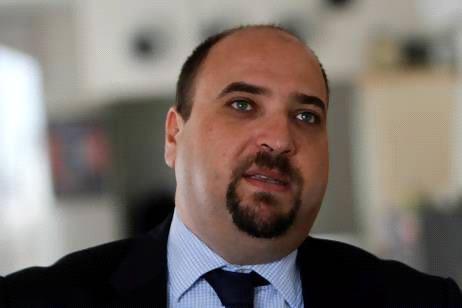Ammon News - DUBAI (The National) - The head of the Palestine Exchange says hopes of a US$4 billion peace dividend has fuelled a stock rally over the past month ahead of restarted talks between Palestinian and Israeli officials.
"We are having our best week ever: prices and liquidity are both up," said Ahmad Aweidah, the chief executive at the Nablus-based bourse. "People understand that if peace talks move in a positive way, economically, there's a huge package involved: there is going to be $4bn of investment in big infrastructure projects that will be mostly targeted towards the private sector."
Shares of the bellwether Paltel,the biggest telecoms operator in Palestine, have jumped 5.6 per cent since July 7, to close at 5.04 Jordanian dinars each on Thursday. The Palestine Stock Exchange Index has risen 5 per cent to 475.28 over the same period. Liquidity has jumped from an average value of $700,000 a day to $2 million a day.
Last week, the US secretary of state, John Kerry, brokered talks between Palestinian and Israeli negotiators. It was the first time the two sides had come together and agreed to restart negotiations since 2010, when talks collapsed following Israel's construction of Jewish settlements on occupied land.
Established in 1995 following the Oslo Accords, the Palestine Exchange has overcome an array of regional challenges: Israeli invasions; a civil war; and an international blockade. Over the past 18 years, the exchange has grown in value and listings.
Today it has a market capitalisation of about $2.8bn, with 49 companies listed and more to come.
"If there is ever a peace agreement, and there is a big if … everything will change," said Mr Aweidah.
"You'll have post-occupation recovery, reconstruction, investment, money from the Palestinian diaspora all coming in.
"We are not poor people, but people who work under very difficult circumstances.
"Listed companies are doing well under military occupation. But imagine if these companies would function as they do in a normal country."
Local companies paid an average dividend yield of 6.43 per cent last year, the highest payout in the Arab world.
In June, the international index compiler MSCI said it added a stand-alone index for Palestine. The development has encouraged executives at the bourse to work on a strategy to include the country's stocks into MSCI's frontier market index.
"At least now we will be tracked by fund managers," said Mr Aweidah. "The big problem we have is liquidity and market cap. Their criteria is that we should have at least two companies with a market capitalisation of more than $517m each."
Paltel, worth $1bn, is the largest listed company on the Palestine Exchange. The other three biggest companies hover in the region of $400m, the official said.
Bank of Palestine has a market cap of $415m, Wataniya Palestine's is $280m and Padico is $272m.
Pharmacare, the third-biggest pharmaceutical company in Palestine, listed on the exchange in April. Two listings are planned in the fourth quarter.
The first is Apic, a Palestinian investment company that is active in the retail, automobile and food industries. The second is an electronic retailer, but Mr Aweidah said it was too soon to disclose details.
